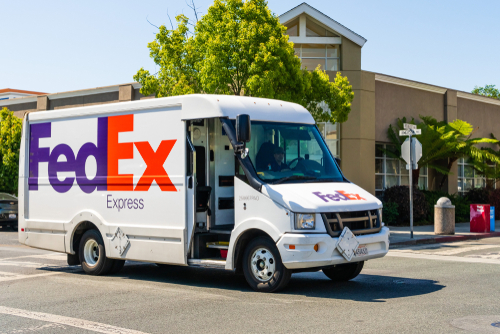Recent reports reveal that FedEx delivery trucks are being equipped with advanced camera systems that are not just monitoring driving behaviors but also assisting law enforcement agencies. These cameras, integrated with AI technology, are capable of detecting unsafe driving habits such as distracted driving, drowsiness, and even seatbelt use. The footage is wirelessly uploaded to a cloud-based portal, allowing FedEx safety personnel to review and address any concerns.
FedEx's collaboration with third-party suppliers like Lytx and Samsara ensures that these AI-enhanced systems provide detailed data on driver performance, which can lead to disciplinary actions if unsafe practices are detected.
FEDEX is spying on you for law enforcement!!!! How is this allowed to happen.
How your FedEx driver is helping cops spy on YOU https://t.co/B191QXHO1J via @MailOnline— X PI Scott (@mrcoffeegrinder) June 30, 2024
The primary goal of this technology, according to FedEx spokesperson Jim McCluskey, is to enhance safety and security across their operations, reduce accidents, and protect their cargo from theft. This initiative is partly driven by the high costs associated with commercial truck accidents and legal liabilities, with the average cost of an accident involving injury nearing $200,000.
However, the use of these cameras has raised concerns among drivers and privacy advocates. Many drivers feel that constant surveillance creates a stressful work environment and erodes trust between employees and the company. Some drivers worry that the footage could be misused to micromanage their workday or penalize them for minor infractions.
FedEx hires independent operators to do their ground delivery service, as does Amazon. Will FedEx require the independent operators to install these cameras on their delivery vehicles?
— imaburgher (@imaburgher) June 30, 2024
Additionally, there are growing concerns about the extent to which this surveillance data is shared with law enforcement agencies. FedEx is reportedly working with local police to build an AI car surveillance network, utilizing the footage captured by their delivery trucks. This partnership aims to aid police in monitoring and investigating criminal activities, but it also raises questions about privacy and the potential for misuse of surveillance data.
The broader implications of this technology are significant. As more companies, including rivals like UPS and Amazon, adopt similar surveillance systems, the landscape of commercial driving is rapidly changing.
These developments suggest a future where delivery drivers and other commercial vehicle operators are under constant watch, raising important discussions about worker privacy and the balance between safety and surveillance.
In summary, while FedEx's implementation of AI-powered cameras aims to improve safety and reduce costs, it also brings to the forefront critical issues regarding employee privacy and the potential overreach of surveillance technology. As this practice becomes more widespread, it will be essential to address these concerns to ensure a fair and respectful working environment for drivers.

